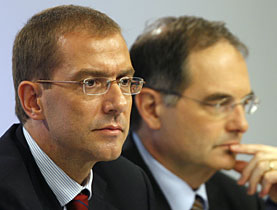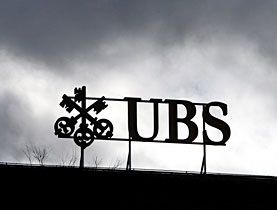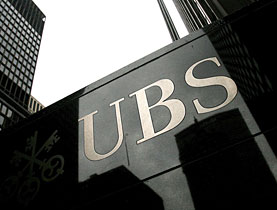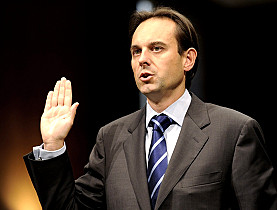UBS One Bank U-turn intensifies speculation

The decision by UBS to untangle its investment banking, asset management and private banking arms has inevitably led to speculation of a future break-up.
One expert believes the U-turn by Switzerland’s biggest bank keeps its options open, but a final decision on selling off businesses will not be made until new board members have a chance to settle in.
UBS’s much-vaunted One Bank integrated model was designed to maximise profits by passing clients and their assets from one division to another.
Investment bankers, for example, recommended clients who had made money on a company takeover deal to asset managers within the company. In the good times, the cooperation was said to have significantly boosted profits.
But the recent run of problems in investment banking has contaminated other key businesses, leading to a defection of wealthy clients. UBS reported wealth outflows of SFr44 billion ($40.5 billion) in the second quarter.
The decision to restore the independence of individual business units is a sign that UBS will ditch investment banking altogether, according to some analysts.
“We believe UBS investment bank will be not fully owned or even potentially disposed of by UBS over the next two years,” said JP Morgan analyst Kian Abouhossein.
No takeover threat
But such a move would have to wait until the bank’s new finance chief and four proposed board members, due for election in October, have had a chance to settle in, according to Hans Geiger of Zurich University’s Swiss Banking Institute.
“By separating these three divisions UBS now has the strategic flexibility to sell, merge or float them on the stock exchange,” he told swissinfo. “But it is dangerous to make such a decision in a moment of crisis. The bank can afford to postpone until the weather is better.”
“It would make no sense to sell at the moment as it would not get a fair price in the prevailing conditions,” he added.
Geiger is of the opinion that the current poor state of UBS’s investment banking arm would put off potential buyers for the time being. And he believes that the bank as a whole is still too closely intertwined to attract hostile bidders.
“If the bank was split into three very distinct groups with not much in the way of common services and infrastructure then it would be a much more attractive strategic target because an aggressor could buy the whole and could sell off retail and commercial banking, for example,” Geiger said.
“At the moment there would still be too much work to do to achieve this.”
Conflict of interests
UBS was not the only bank to have adopted an integrated business model. Switzerland’s second biggest bank, Credit Suisse, also operates such a strategy and other international players such as HSBC and Barclays have recently defended their own One Bank stance.
But Geiger remains convinced that such a model could potentially create future problems for these banks.
“Such a synergy can create an inherent conflict of interests. Investment banking raises money for takeovers and private banking invests the assets of wealthy clients. Mixing the two up is not how it should be done,” he said.
swissinfo, Matthew Allen
UBS endured a tough 2007 and has spent the first half of 2008 in no better shape as a result of the US subprime mortgage crisis.
In July 2007, chief executive Peter Wuffli stepped down following the collapse of the bank’s hedge fund Dillon Read Capital Management.
In October 2007, UBS said it would cut 1,500 jobs in its investment banking arm, including that of its head Huw Jenkins. Chief financial officer, Clive Standish, left at the same time.
UBS has written down some $37 billion as a result of the subprime mortgage market collapse. Chairman Marcel Ospel stepped down in April.
The bank was then investigated for allegedly helping US citizens evade taxes, following a confession from a former employee. The case led to UBS stating it would stop offshore banking activities in the US.
UBS has also been forced by US regulators to buy back billions of dollars of securities sold to customers that consequently lost their value.

In compliance with the JTI standards
More: SWI swissinfo.ch certified by the Journalism Trust Initiative




You can find an overview of ongoing debates with our journalists here. Please join us!
If you want to start a conversation about a topic raised in this article or want to report factual errors, email us at english@swissinfo.ch.